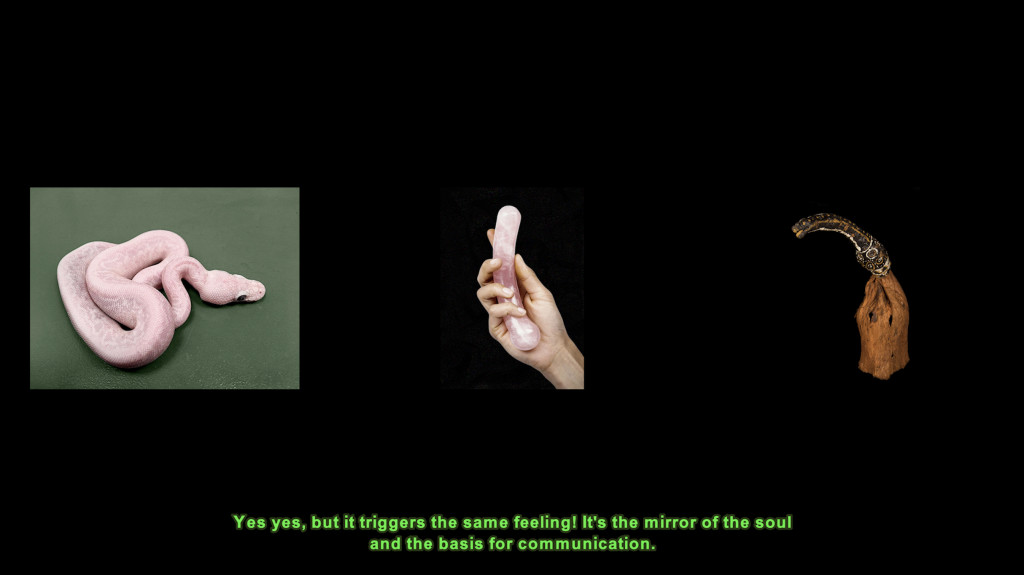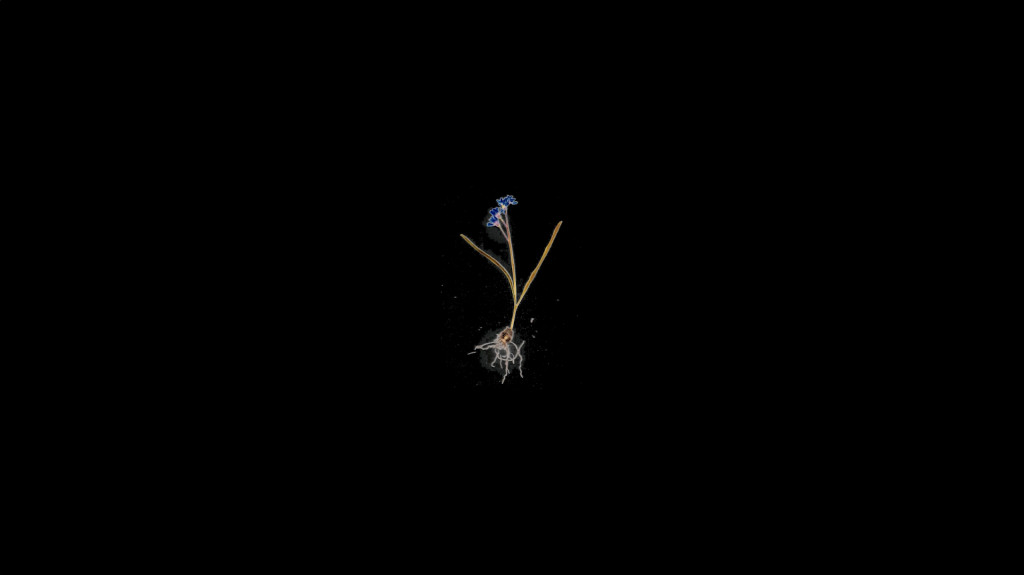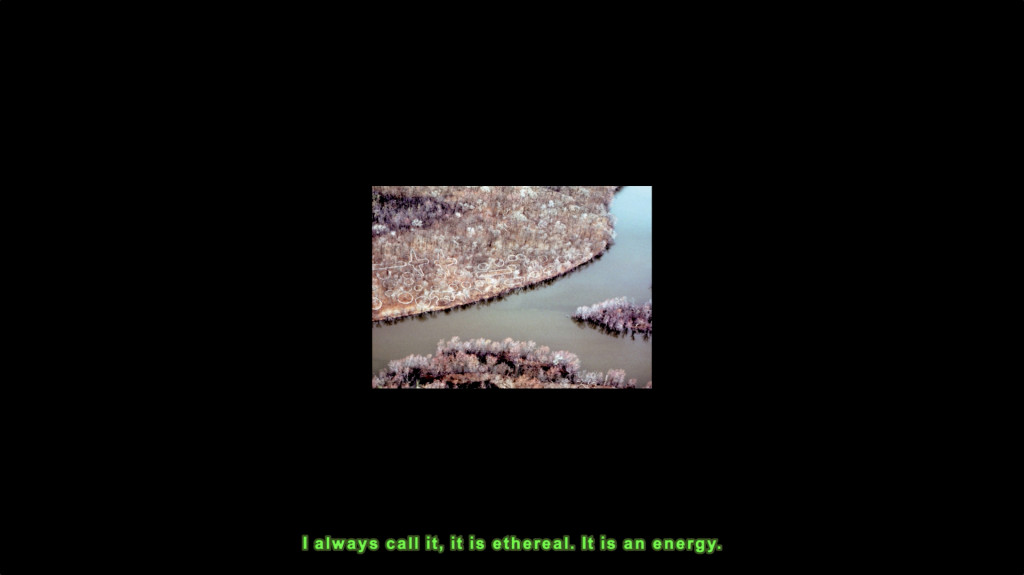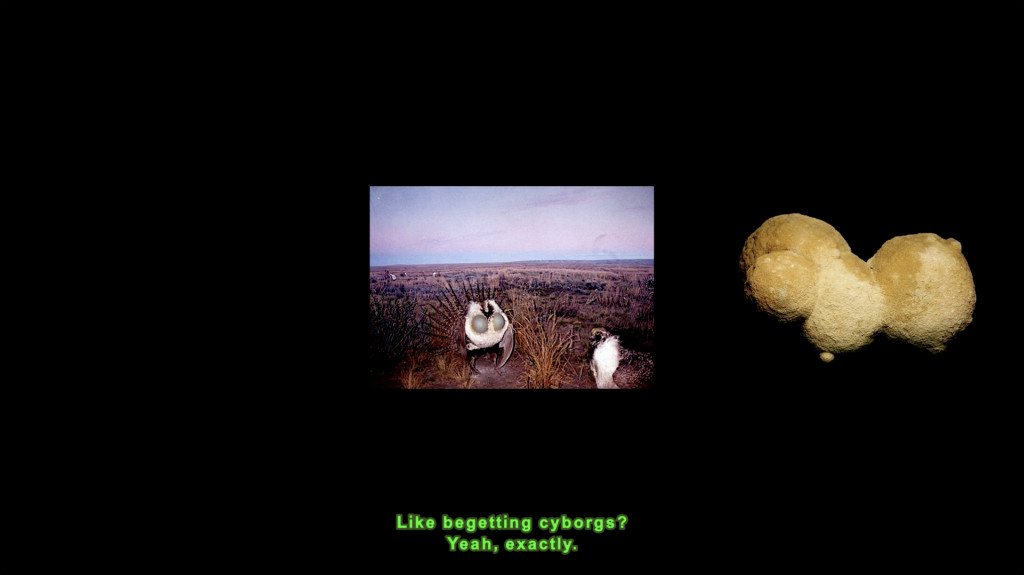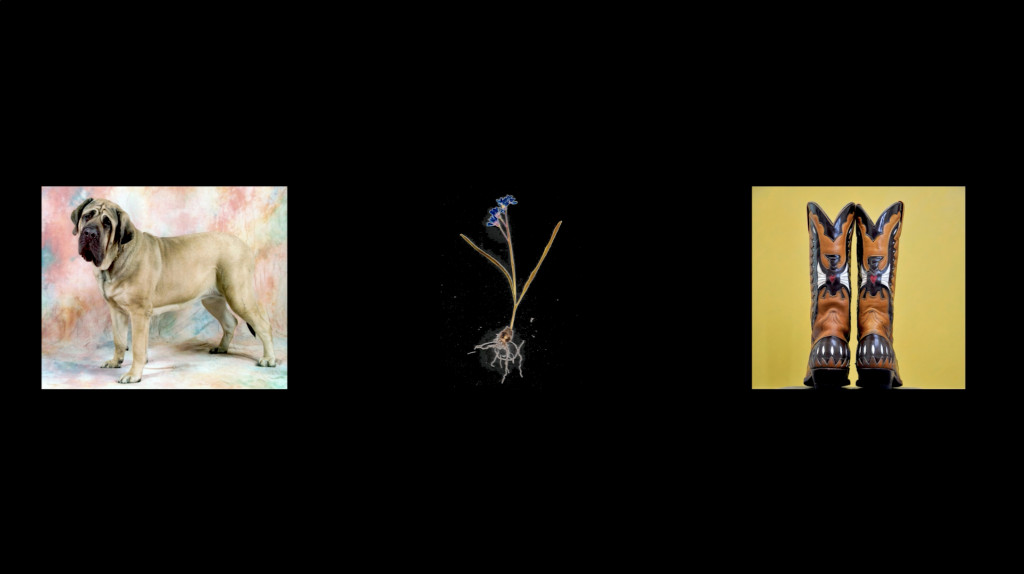Here is Ulay with
Lotte Reimann
How is Ulay’s presence felt today? The multifaceted artist was key in the evolution of our institution, founded in Amsterdam in 1975. Beyond contributing memorable works and words throughout the years, Ulay was a key advisor for the founders. And his spirit gives us courage to make space and time to continue posing vital questions – questions of life, death, appearance, disappearance, indexing, archiving, art, anti-art, society and its irritations. At Stedelijk, de Appel transformed Room 1.15 in the exhibition ULAY WAS HERE into a place where Ulay’s presence is thought and felt beyond his death. This is a collective effort of invited artists, program contributors and our lively archival materials.
"Love, in its multiple incarnations as desire, is as open-ended as life itself and remains the ground of meaning. This erotic principle is operative not just among human souls but everywhere in the universe".
Lotte Reimann – objects and people (2021)
objects and people, 2021 begins with this quote originally attributed to Plato1 but often re-approached and negotiated by contemporary theory, design and architecture. For the third chapter of Here is Ulay with, Lotte Reimann examines not only a symbolic and generic aspect of this statement but the literal one as well. Presented in special format online for one week is her new film, objects and people, which explores the phenomenon of Objectum Sexuality (OS), a “female fetish” – something considered inexistent as a concept by western cultural history and psychology in the past century – wherein protagonists engage in romantic, love relationships with objects. OS raises key questions regarding our dichotomous cosmology (naturalism), which divides humans into body and mind/soul and the rest of the world into nature and culture/society. In preparation, Reimann has been conversing with women practicing OS and her film shares archival images of objects that have been deeply desired. Reimann’s cinematic pace and soundscape allows a process of deeper and more empathic understanding of this love to unfold.
Ulay’s own understanding of objects and materials as ‘energy-charged’ and his engagement with spiritualism as well as his ‘fluid’ perception of gender serves as a point of contact. While this consciousness is present throughout his work, it becomes an imperative in Positive Zero, 1983, a sound performance for a theater stage, created together with Marina Abramović, wherein sound, colors, and objects are attributed animistic values. Positive Zero was performed three times during the Holland Festival in 1983 in stages across the Netherlands. It signals a transition in the artists’ collaborative work towards a more wholistic understanding of body/mind/spirit found in Tibetan Buddhism and related cosmogenies.
About Lotte Reimann
Lotte Reimann studied fine arts with a favor for photographic images. Her work gives insight into personal worlds, leaving room for her own artistic perspective. Found and own images, texts, and sounds connect easily into open story lines. These fragmentary narratives touch on existing power structures, e.g. between author and subject. The 'erotic' body in ‘modern’ society, and the archive as a controversial tool for both understanding and authorization are Lotte's recurring subjects of investigation. By collaborating with the so-called 'other,' her work loosely links to post-colonial theory. The stories and characters glisten in ambiguity and inexplicability. They are stories designed to dodge clarification and avoid definitive explanations, cast off stereotypes and challenge conventional analysis. Lotte's works have been shown and discussed internationally in the European Union and the USA.
In 2017/18 Reimann received the AFK 3Package Deal stipend with the support and the guidance of the AFK Visual Arts Coalition, formed between the Gerrit Rietveld Academie, Foam and de Appel.
Ulay was here with is curated by Danai Giannoglou with de Appel archivist Nell Donkers, designed by Bardhi Haliti. With thanks to the dedicated teams of Stedelijk Museum Amsterdam and ULAY Foundation.

